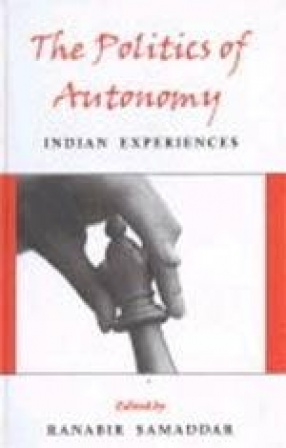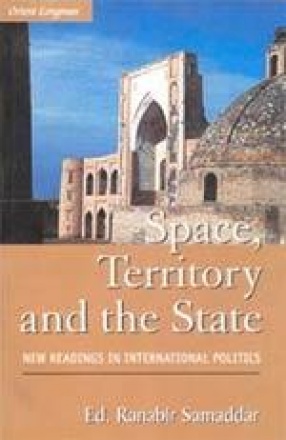The Politics of Autonomy: Indian Experiences
At a time when movements by women, indigenous people, Dalits, various minority groups, and other sections are rising to prominence, what will the future of politics be like? How will autonomy--the efforts of various sections of society to resist the power of the state--change the way we understand democracy As this volume tells us, a critical inquiry into the idea of autonomy suggests that the politics of the future will be the politics of autonomies: an engagement that combines notions like self-government, women's autonomy, devolution of power, the rights of minorities, greater popular access to resources, and legal pluralism, and where different autonomies must learn to negotiate and co-exist. Viewing democratic theory through the lens of autonomy, the contributors: Argue that autonomy has to be an essential ingredient in the building of post-colonial democracies, not merely a residual measure to keep some constituencies happy; Draw attention to the contending principles of autonomy, the consequent politics of autonomies, the inescapable co-existence of autonomies, and the need for dialogue; and Analyze the instructive Indian politico-historical experience because of its diversity and range, the extent of colonial institutionalization, multiple forms of autonomy, the complex path of constitutionalism, a wide variety of accords, and the unyielding state that is determined to keep the nation intact. In the process, the contributors traverse a wide range of issues relating to women's autonomy, peace accords, the nature of federalism in the Indian constitution, autonomy in international law, and fiscal decentralization. These debates are then supported by case studies on the autonomy experiments in Kashmir, Darjeeling, and the entire Northeast, and on fiscal devolution. Rich with empirical findings and combining research with dialogue, The Politics of Autonomy represents cutting-edge research on democracy. It will be widely welcomed by scholars of nationalism, democratic theory, federalism, law, women's rights and multiculturalism.
Contents: The politics of autonomy: an introduction/Ranabir Samaddar. I. Genealogy: 1. The birth of the autonomous subject?/Pradip Kumar Bose. 2. Women's autonomy: beyond rights and representations/Paula Banerjee. 3. Where do the autonomous institutions come from?/Samir Kumar Das. 4. The constitutional and legal routes/Ashutosh Kumar. 5. Autonomy's international legal career/Sabyasachi Basu Ray Chaudhury. II. Practices of Autonomy: 6. The ethno and the geo: a new look into the issue of Kashmir's autonomy/Sanjay Chaturvedi. 7. Silence under freedom: the strange story of democracy in the Darjeeling hills/Subhas Ranjan Chakrabarty. 8. Autonomy in the northeast: the frontiers of centralized politics/Sanjay Barbora. 9. Autonomy in the northeast: the hills of Tripura and Mizoram/Subir Bhaumik and Jayanta Bhattacharya. 10. Resources for autonomy: financing the local bodies/Ratan Khasnabis. Bibliography. Index.
Get it now and save 10%
BECOME A MEMBER











Bibliographic information